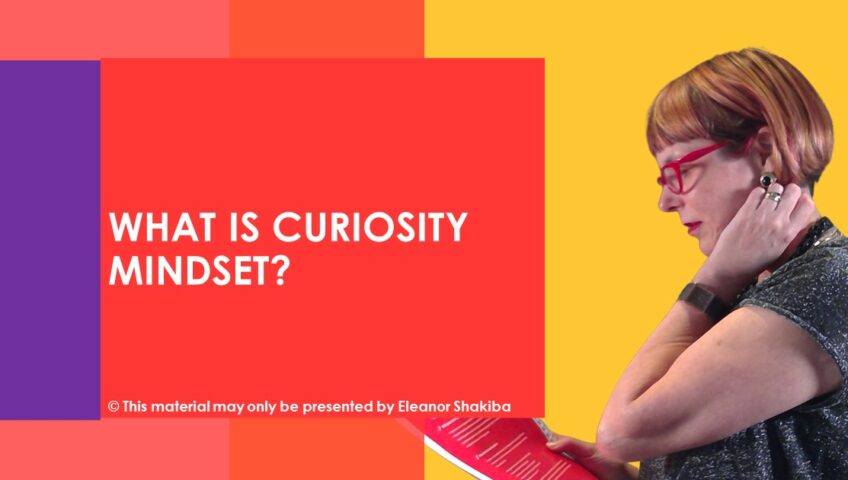If you want to unlock your creative talent, it is time to strengthen your curiosity muscle. Curiosity and creativity work together like stretching and aerobic activity. They complement each other and lead to better ‘mental fitness’. This is why positive psychology trainers and researchers are so interested in the concept of the ‘curiosity mindset’. This is a way of engaging with the world that leads to improved resilience and is also linked to high performance in academic, social and work contexts.
So, what is curiosity and why should leaders and HR practitioners be interested in fostering it? According to Chris Peterson and Martin Seligman it is one of five strengths which promote wisdom. They define curiosity as “taking an interest in ongoing experience for its own sake; finding subjects and topics fascinating; exploring and discovering”. In the workplace, the benefits of promoting curiosity are clear. You probably know this from practical experience. But what does the research tell us about curiosity and thriving at work?
It turns out that curious people suffer less stress, respond to problems more creatively and bounce back quickly after experiencing setbacks. In other words, curious people have higher levels of mental stamina and resilience. They also have high levels of engagement and connection – and this supports the development of positive workplace culture.
Overall, there is a strong link between curiosity and learning ability, because curious people naturally acquire useful information, habits and skills. Benefits of encouraging your people to be curious include:
- Higher motivation and engagement
- Better problem-solving
- Increased innovation
- Development of positive workplace culture
- More ‘positive deviance’ across the organisation
How do you tap into these benefits in your business? You can use positive psychology training tools to teach employees to flex into the curiosity zone. Building curiosity involves developing two personal characteristics. Exploration is the tendency to seek out new or challenging situations. Absorption is the ability to become fully immersed in an experience.
How can leaders and trainers encourage people to strengthen these characteristics? By micro skilling them in three key cognitive skills.
Attention direction
Put simply, this means learning to focus. Positive psychology trainers often advocate the use of mindfulness techniques. These are, essentially, techniques which help people focus and direct their attention to what is happening in the here and now. It turns out that people who are skilled in the art of exploration are also skilled in the art of attention direction. So, teach mindfulness and reframing skills.
Activation of flow states
Flow is a state of total immersion in an activity. Think back to the way you became immersed in games when you were a child: you were experiencing flow. Adults enter this state when they do things they love and when they draw on their strengths to solve a problem. Teaching your people flow theory is a great way to help foster this state – which links directly to curiosity-boosting ‘absorption’.
Tolerance of ambiguity
Many people feel uncomfortable with ambiguity. For example, leaders who seek closure dislike the ambiguity of not having immediate solutions to problems. Curious people, on the other hand, thrive on ambiguity. It triggers their interest and shifts them into a state of exploration and creativity. Teach your people this. Encourage them to attend resilience training, positive thinking workshops or creativity sessions. All of these will foster increased tolerance of ambiguity.
Overall, then, there is a lot you can do to foster curiosity thinking in your business. Focus on building focus, flow and tolerance of ambiguity. Then watch your people thrive!
About the author: Eleanor Shakiba
Eleanor is a positive psychology trainer and coach. She works with ‘positive deviants’ to build positive mindsets, proactive communication and purposeful leadership. Since 1994, Eleanor has been teaching talented people how to think, communicate and behave in ways that build success. She holds qualifications in Social Anthropology, Positive Psychology, Counselling, Coaching, Adult Education and Neuro Linguistic Programming. She’s known for her dynamic training style and passion for experiential learning techniques. Download a copy of Eleanor’s free ebook Positive Psychology Toolkit for HR and L&D Practitioners.
